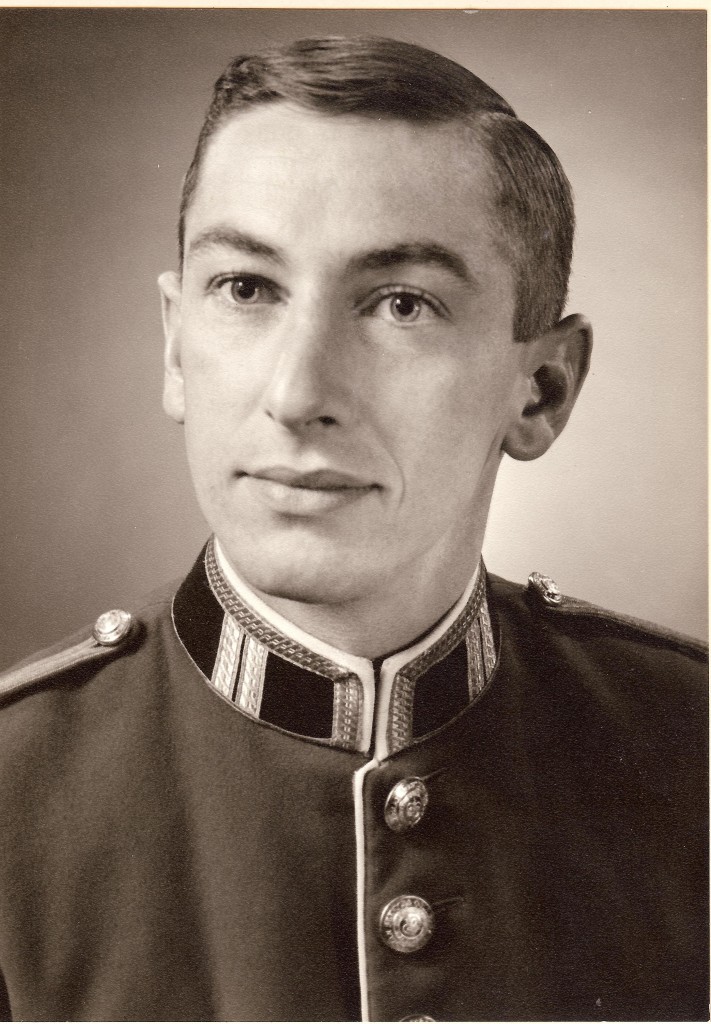
From RMC to Business Success
By 25881 OCdt (III) Anthony Matlock
 In 2011, Keith Ambachtsheer was awarded the CFA Institute’s Award for Professional Excellence “for exemplary achievement, excellence of practice and true leadership.” This latest achievement is one of a series of accolades which complement his more than forty years of successful experience in the pensions and investments industries. At present Mr. Ambachtsheer multi-tasks between his roles as a Director at the Rotman International Centre for Pension Management, Founder of KPA Advisory Services and Co-Founder of CEM Benchmarking, of which the pension funds and long-horizon investment pools aggregate to $7 trillion.
In 2011, Keith Ambachtsheer was awarded the CFA Institute’s Award for Professional Excellence “for exemplary achievement, excellence of practice and true leadership.” This latest achievement is one of a series of accolades which complement his more than forty years of successful experience in the pensions and investments industries. At present Mr. Ambachtsheer multi-tasks between his roles as a Director at the Rotman International Centre for Pension Management, Founder of KPA Advisory Services and Co-Founder of CEM Benchmarking, of which the pension funds and long-horizon investment pools aggregate to $7 trillion.
The pension funds guru’s road to success in the field of economics began as an Officer Cadet in 1961 at Royal Roads Military College.
A young Keith had been drawn to the Canadian Forces’ “Regular Officer Training Plan” for three reasons: one, as a three-year old his family was liberated in Rotterdam by the Canadian Army in 1945; two, he had been a member of the CF Militia growing up in Sarnia, Ontario; and three, his father’s unfortunate passing made military college’s free education a sound option.
Officer Cadet Ambachtsheer quickly distinguished himself as a talented soccer team “striker” during his first two years at Royal Roads. Securing the league scoring title, Keith saw the team win the Vancouver Island championship in the 1961-2 and 1962-3 seasons.
Upon arrival at RMC for third and fourth year, the Four-Squadron Deputy Cadet Flight Leader transferred to varsity football; however, this sport was short-lived as “three cracked ribs ended my football career.” A recovering Keith, now in fourth-year, returned to soccer for 1964-5 – a season which saw RMC reach the league finals.
In terms of academics, the best-selling author realized that “the only ticket out was to take General Arts in second-year,” as his first-year experience in Royal Road’s mandatory pre-engineering curriculum was not as exciting as Economics – with Professors Cairns and Binhammer being true inspirations. According to the arts-man: “I was attracted to a discipline that attempts to explain how the world works from some basic premises about human behaviour, decision-making, and the operation of markets for goods, service , labour and capital.”
“At its best, Economics is both rigorous and intuitive at the same time. How cool is that!”
Nevertheless, the young-Friedman recalls that the nine arts-men in second-year Roads were “razzed continually by the hundred-or-so science and engineering types” – some things never change!
Upon graduation from RMC in 1965, the Immediate Past Board Chair of the Princess Margaret Hospital Foundation joined the Ordnance Corps and managed to twist some arms in order to secure a posting to the London, Ontario supply depot. A year later, on a leave-of-absence, Keith completed his Masters in Economics at Western University.
Following the degree, the junior officer completed his military service on the faculty of the Canadian Forces School of Management (CFSM) in Montreal, and then made the transition to civilian life as a PhD Economics student at McGill University. The transition “was not that difficult at first; [however], what did become difficult for me was to accept the attitude by some academics that they could lead ivory tower lives, with excursions in the ‘real world’ completely optional.”
“So when the opportunity to join the Sun Life Investment Department [came along], I was ready to go.”
Keith’s early years in the “real world” were characterized by a consistent pattern of challenge-seeking, as the four-time winner of the Graham and Dodd Scrolls transitioned from Sunlife to increasingly smaller companies such as Canavest House and Pension Finance Associates.
“I was willing to sacrifice the positives of large organizations for the flexibility and independence of running a small shop with big ideas.”
According to the economist, this career path has led to “a large informal global network of people with similar professional interests. This ‘connectivity’ is much facilitated by the 24/7 wired world we now live in.”
Keith’s entrepreneurial leadership led to success when, in the 1970s, and with the guidance of his mentor – “the great management philosopher Peter Drucker” – he transitioned his career interest to pension funds management. According to Drucker’s 1976 book, the pensions industry would be a sort of Unseen Revolution – “a fascinating field of both study and business opportunity in the decades ahead.”
“Well that revolution is unseen no longer!”
Keith has recently found himself in the spotlight over the Federal Government’s apparent intention to make changes to the public pension system which “is now a big topic of great interest to Canadians.” To listen to the investment-expert’s interview with CBC Radio’s Rex Murphy on Cross Country Check-up click here.
Furthermore, Keith publishes the well-read Ambachtsheer Letter through his consulting firm, KPA Advisory Services, to some one hundred clients worldwide representing several multi-billion dollar pension funds.
Aside from consulting, the strategic analyst is also the Co-Founder of CEM Benchmarking (began in 1991) which monitors “the organizational performance of some 300 pension organizations around the world, with aggregate assets of some $7 trillion,” and offices in Toronto, the US, and Europe.
“I would like to think CEM has had, and continues to have a significant influence on the quality of pension management around the world.”
In addition to his consulting and managing success, Keith has also simultaneously pursued the field of economics education as a Director and Adjunct Professor of Finance at the Rotman International Centre of Pension Management (ICPM).
ICPM’s mandate is to translate and deliver academic research to a “practitioner community.” Supported by thirty-three major pension funds from ten countries, ICPM “creates forums to discuss… how [pension management] should impact current practices, it publishes the International Journal of Pension Management, and it conducts week-long Board Effectiveness Programs for board members of pension organizations.”
“The Centre produces an amazing amount of value with a small, dedicated team of academics and professionals.”
In looking back upon his career, Keith Ambachtsheer’s realizes that the early RMC experience was a preparation for failure as much as success: “My path over the last 40 years has led me down more than one blind alley where things didn’t work out so well – the RMC lesson was to get your butt up off the ground and move on to Plan B.”
When asked if he has a message for current, business-minded Cadets, Ambachtsheer says to stay motivated by making a difference, and furthermore: “something our soccer coach at Royal Roads drilled into us. If you don’t have the ball, find an open space to go to and something good might happen!”
Keith Ambachtsheer is a member of the RMC Club Foundation’s Investment Advisory Committee, and is an active member of the Class of 1965 which has, individually and collectively, donated $1.6 million in endowments, and funds the yearly Class of ’65 Teaching Excellence and Professorship in Excellence Awards.
